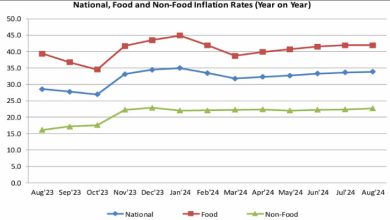Inside two mining development pacts
The long-awaited Mining Development Agreements(MDAs) the Malawi Government has signed will enable it to have 15 percent and 10 percent stakes in each of the two firms, according to details of the pacts.
The signing of the two MDAs last Friday in Lilongwe came 17 years after the Malawi Government also signed the first-ever mining contract with Australian Stock Exchange (ASX)-listed Paladin Energy Limited in February 2007, owning 15 percent equity.
In the two agreements, the government will own 15 percent stake in Lotus Resources Limited, the successor of Paladin Energy Limited and 10 percent shareholding in Lancaster Exploration Limited, a subsidiary of Mkango Resources Limited.

This means that Lotus Resources Limited will next year resume mining at Kayelekera Uraniun Mine in Karonga District, which was put on care and maintenance in February 2014 while Mkango Resources Limited is expected to start rare earths mining at Songwe Hills in Phalombe District in the next two years.
Apart from the disparity in the non-diluting equity interest holding, the two deals are largely similar with key components being five percent royalty of gross revenue, 30 percent corporate tax rate, 10 years stability period, 10 years tax loss carry forward and community development expenditure allowable tax deduction.
In addition, the deals also provide for exemption from customs and excise duties that include exemption from export duty, import duty, import excise and import value added tax (VAT) on imports and exports of capital goods as provided in the applicable law.
This means in total, the two projects will create over 12 350 direct and indirect jobs while the Malawi Government will be earning $142.2 million (about K249 billion) annually through taxes, royalties and dividends.
Speaking in an interview on Tuesday, mining expert and former government geologist Ignatius Kamwanje described the MDAs as fair compared with other mining deals signed in the past, especially that with Paladin Energy Limited.
He said: “Looking at the deals, it seems the government learnt a lesson from the past agreements it reached with other companies.
“For instance, the Paladin deal also had five percent royalty of gross revenue, but looking at the size of that venture it was on the lower side.”
Kamwanje said the 10 years stabilisation provision in the MDAs is critical because it guarantees that the government will be collecting fixed revenue after the expiry of the period unlike in some past deals where there was lack of clarity.
In a separate interview, geologist Grain Malunga, who is also former minister of Energy, described the deals as win-win, saying the government will collect over 50 percent of the revenue which is the best it could get from a mining deal.
He said: “In fact, the government will benefit more from these mining agreements.
“The agreements have not been concealed; hence, members of the public are able to see and appreciate it.”
Meanwhile, after the signing of the MDAs, Lotus Resources securities’ trading was halted on ASX at the company’s request, a development Malunga said was needed to avoid speculative trading as there are some changes in equity holding structure.




